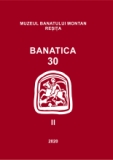Activitatea Primariei municipiului Timisoara in vreme de razboi (anul 1941)
Activity of Timisoara Mayoralty during wartime (the year 1941)
Author(s): Vasile RămneanţuSubject(s): Cultural history, Political history, Social history, WW II and following years (1940 - 1949)
Published by: Editura Mega Print SRL
Keywords: Mayoralty; Timișoara; budget; social; cultural;
Summary/Abstract: The political-military events from 1940-1941 (territorial concessions and a dictatorial regime installing in Romania) had serious consequences on Timișoara Mayoralty too; it had to work in the circumstances of a new legislation characterized by an excessive centralization. Once with World War II and Romania entering the international conflagration after, the budget of Timișoara Mayoralty was a tight one in 1941, a smaller one than the previous year while the municipality had to back the upkeep of cultural and university institutions coming here from Cluj as the National Theater and Romanian Opera, Faculty of Science of King Ferdinand I University, School for Electromechanical Engineering, etc. Important amounts were at the same time distributed both for upkeep the refugees (pupils and students among them) from the lost territories in Transylvania and the Dobrudja, and the German soldiers who set in Timișoara following the agreements between the governments of Romania and Germany. These extra expenses made the Municipality distribute decreased funds for the local cultural institutions like The Banat Museum or the Town Library, but also for other activities. The communal Technical Service built in 1941 new streets, undertook works of leveling and maintenance of some public buildings; the Horticultural Service made new plantation using exclusively saplings from its own nursery. The Mayoralty gave much prominence to a new building Regulations in accordance with trade and industry needs of development and the geographic situation of Timișoara. Unfortunately, the works stipulated by that project couldn’t be started for lacking of specialists who were drafted at that time. It was a factor to influence also the other departments of the Mayoralty and the level of its works. It comes out in 1941 that the town cleaning wasn’t satisfactory for lacking the citizens’ civic culture, garbage baskets, workers in the field, or mechanical outfits that couldn’t have been bought in that money crisis. For the units the Mayoralty still had, part of them made the trade public Administration ––Economic settlements of Timișoara City (S.E.T.); they also passed though the same crisis with the tight budget, drafted personnel, and the raw material rising in the price of, etc. In spite of all, there were units to have benefits at the end of the year: the public cinema houses (enlarged after Select cinema reopening and Scala cinema buying), Slaughter-house, Ice Fabric, Popular watering places, Funeral furnishers, and the Sand quarry. The communal dairy registered a special situation, by confronting with a major crisis due to old machineries lack of money to invest in, and difficulties in collecting milk from the rural localities. The Mayoralty and public Administration decided to lease the unit in order to go on with the inhabitants (poor people especially) and social institution providing with milk and dairy produce; the unit was leased in the summer of 1941 after difficult talks. We might note that the decisional factors backed both the interests of the unit and the Mayoralty implicitly, and of the inhabitants (the poor ones mainly) and social institutions during those talks. Besides of evident difficulties, the Mayoralty succeeded to allot important funds for poor people supporting with money, food and clothes. The leaders of the Mayoralty had also to distribute dwellings to the refugees, and offered them free food up to their locative situations setting. Given Timișoara Mayoralty efforts, such a problem was almost solved in 1941, but the poor refugees were still given money, clothes, food, etc. The local cultural institutions and the ones that took refuge in Timișoara were given financial support (The National Theatre and Romanian Opera from Cluj were gratis given the building of the communal Theater to work there), and also were the pre-university, university and vocational schools. We might gather that Timișoara Mayoralty succeeded to carry out in a large measure of its obligations in spite of that difficult situation, and maintained so Timișoara among the important towns in Romania.
Journal: BANATICA
- Issue Year: 2/2020
- Issue No: 30
- Page Range: 465-486
- Page Count: 22
- Language: Romanian

